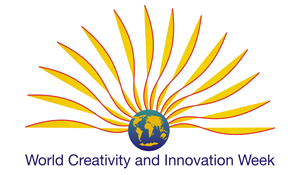Adobe survey: Creativity is important for career success – repost from Smartplanet
Could creativity be the key to performing well at work? Yes, according to a recent online survey commissioned by software maker Adobe. The study found that 78% of college-educated, full-time salaried American adults 25 and older believe that “creativity is important” to their current career. A whopping 85% of the 1,000 survey participants agree that “creative thinking is critical for problem solving” in their jobs. However, 32% don’t feel comfortable “thinking creatively” at work.
As far as what “creativity” means, exactly, most of the respondents believe the term is defined as the “ability to plan new, creative ideas” (33%) and thinking “out of the box” (33%). Only 3% equate creativity with “brainstorming to solve problems” and another 3% believe creativity is synonymous with an “unorthodox approach.”
There’s a generation gap in terms of how to further define “creative thinking.” Younger Americans associate creativity with the ability to present their thoughts with images and graphics than older U.S. workers. Thirteen percent of respondents between 25-44 believe creative thinking is about “expressing oneself visually” while a mere 2 % of those 45 and up agree.
Yet when asked what personality traits are most important for a successful career, while creativity ranked among the top three, it came in third, with 20% of respondents choosing it, behind “personability” (21%) and the classic qualifier of success, “intelligence” (24%). In other words, it’s still important to be smart and likable, in that order.
Given that creativity is considered a vital quality for thriving in the workplace, how can it be cultivated? The survey found that 71% of respondents believe that “creativity” should be taught as a course.
The concept of more creative classrooms and workplaces certainly seems promising, and could encourage more innovative thinking across industries. But in our era of quick criticism (online and off), it’s only inevitable that skeptics might soon wonder if teaching creativity will also hinder it if lessons on how to be creative are rigid in any way. Of course, how one reacts depends on how one defines creativity: as a business practice, a skill, or a personality trait. The recent Adobe survey suggests that as it is understood today, “creativity” may be all of the above.
By Reena Jana | November 15, 2012, 8:06 PM PST
Aside 1:
Watched Faking the Grade on CBC doc zone and am thinking about adopting the new ethic. Rather than completely freshly write my blog, why not repost others’? Saves time in the long run…and gets to the same end of sharing the info, right? The article was written by Reena, the highlights however are mine.
From the documentary’s description
“It is estimated that at least 70 per cent of university students cheated at some point during their high school years. Many continue to do it (and few get caught) once they move on to post-secondary education. And research shows those who cheat in school go on to cheat in life. Those cheaters are everywhere, because ours is a culture where honesty has been de-valued and a win-at-any-costs strategy is encouraged.”
Aside 2:
Related articles


I fully agree. That’s true all over the world…
I wonder what it will feel like when individual creativity is nurtured instead. Think it’s possible or just pie-in-the-sky?
Creativity can be expressed in many ways. Try writing stories or poetry, songwriting including the music. See if you can sketch or paint. Learn to play a musical instrument.Take classes in these and see how you do.
Absolutely! Any of those activities changes how you use/access your brain and makes a big difference for helping you generate new ideas, make new decisions and take new actions. Thanks for your comment.
Jobs continued to speak of the importance of learning how to quiet the mind. To see things more clearly and live in the present and not in past or future. Finds ways to bertter compete and be more creative then to what you normally would have form the past.
Totally agree. Encourage people to disconnect from media for three days to facilitate the process.
[...] Adobe survey: Creativity is important for career success – repost from Smartplanet [...]